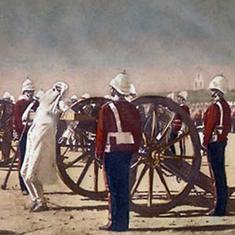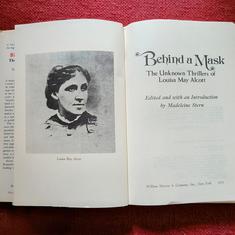US court blocks Donald Trump’s order suspending visas for foreign students at Harvard
The US president had suspended the entry of new international students at the university for six months, which could be extended.

A United States court on Thursday blocked President Donald Trump’s orders from a day earlier to suspend visas for foreign students seeking to study or participate in exchange programmes at Harvard University, reported Reuters.
Amid the university’s escalating dispute with the Trump administration, US District Court Judge Allison D Burroughs granted a temporary restraining order that enjoins anyone from “implementing, instituting, maintaining, enforcing, or giving force or effect to the presidential proclamation” signed on Wednesday, according to NBC News.
Through the proclamation, Trump had suspended the entry of new international students at Harvard on F, M, or J visas, the White House stated. These visas allow international students to study or participate in exchange programmes in the US.
The suspension would have initially been in place for six months but could be extended, Reuters reported.
Trump also directed the secretary of state “to consider revoking” such visas for current Harvard students who meet the proclamation’s “criteria”, according to the statement. The White House added that the university had demonstrated “a history of concerning foreign ties and radicalism”.
Describing the move as “illegal”, the university on Thursday said that it has amended an earlier lawsuit, filed amid a broader dispute with Trump, to challenge the latest proclamation.
Alan M Garber, the president of the university, said that singling out the institution for its “enrollment of international students and its collaboration with other educational institutions around the world is yet another illegal step taken by the administration to retaliate against Harvard”.
Noting that the university had recently obtained a restraining order against Trump from stripping it of its ability to enrol or retain international students, Garber added that Wednesday’s proclamation circumvented this order.
“Today, we have amended our lawsuit and will ask the court to immediately halt the enforcement of the proclamation,” he said in a letter. “We hope the court will act swiftly.”
Garber was referring to its lawsuit against the decision of the US Department of Homeland Security to revoke the university’s certification for international students on May 22.
On May 23, Burroughs issued a temporary restraining order on the revocation. The action would have otherwise prevented Harvard from admitting new international students and forced current ones to transfer to other universities or lose their legal immigrant status.
In a press release on May 22, the homeland security department had claimed that the university was “being held accountable” for allegedly collaborating with the Chinese Communist Party, “fostering violence, antisemitism and pro-terrorist conduct” from students on the campus.
In its complaint, Harvard had asserted that the administration’s decision to block the enrollment of international students violated the university’s constitutional rights and would severely disrupt its operations.
According to data shared by the university, 6,793 international students were enrolled at Harvard during the academic year 2024-’25, making up about 27.2% of the student population.
In April, the Trump administration froze more than $2.2 billion in grants and $60 million in contracts to Harvard after the institute said it would defy demands to overhaul its policies and curb activism on campus. In response, the university had filed another lawsuit to recover the funding.
The action had come hours after Harvard rejected a sweeping list of requirements from the White House ostensibly aimed at combating antisemitism and reforming university governance, admissions and hiring practices.
The US government had said that nearly $9 billion in total grants and contracts were at stake if Harvard did not comply. Trump has also expressed his intention to revoke the university’s tax-exempt status.
Among the demands were that the university should report students who are “hostile” to American values to federal authorities, ensure departments are “viewpoint diverse” and allow an external, government-approved party to audit programmes that “fuel antisemitic harassment”.
Other measures included banning face masks on campus, ending diversity, equity and inclusion initiatives, and withdrawing recognition from student clubs accused of promoting criminal activity, violence or harassment.
The White House has argued that universities have allowed antisemitism to flourish during protests against Israel’s war on Gaza and US support for it. “Harvard had in recent years failed to live up to both the intellectual and civil rights conditions that justify federal investment,” the administration said in a letter on April 11.
Since taking office in January, Trump has repeatedly targeted elite universities about campus protests, diversity programmes and free speech issues. Harvard is the seventh major institution whose funding was paused by his administration. The others are Columbia University, the University of Pennsylvania, Brown, Princeton, Cornell and Northwestern.









